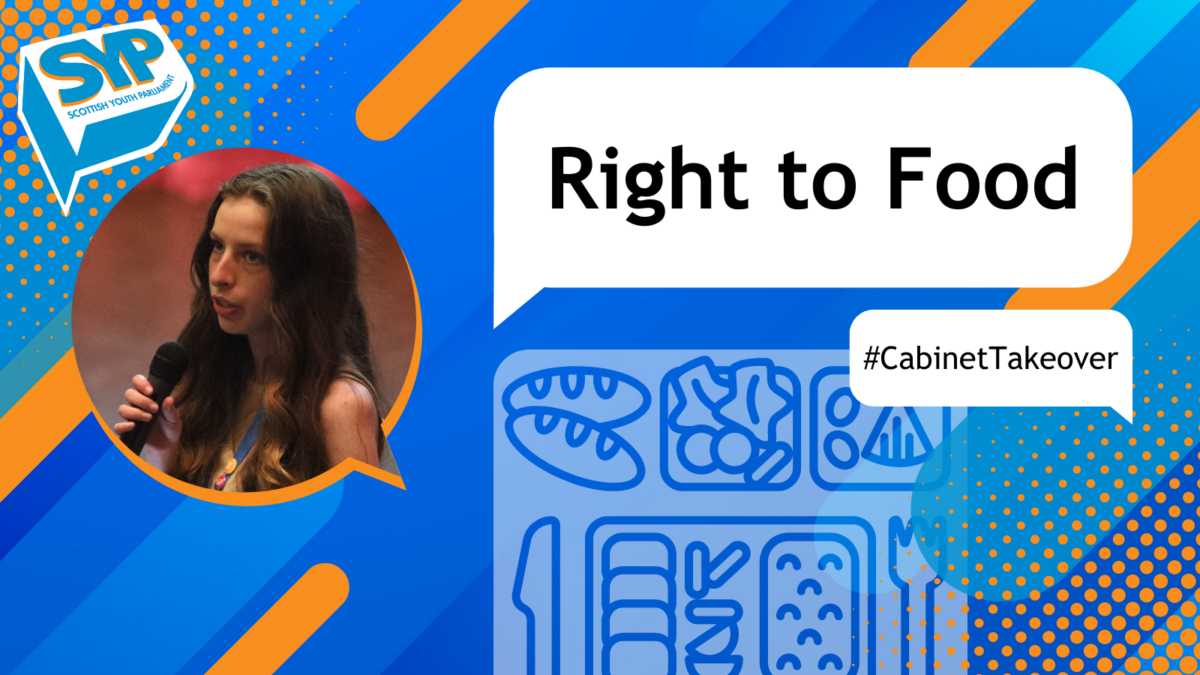Universal free school meals is a policy with the potential to change lives. Improving poverty, health and educational attainment, it was a key recommendation from SYP’s Right to Food report, published after we surveyed 850 young people. I brought it’s findings to the First Minister and his cabinet, calling on them to implement these free school meals and involve young people in decision making around what they eat.
It was a great meeting. Sat there in the room talking and listening to each other, you could feel how much everyone wanted to make positive change and improve the lives of people in Scotland. I’m looking forward to the day that universal free school meals are introduced in Scotland – I truly believe that one day it will happen.
You can read my speech below:
Do any of you remember how much a school dinner cost when you were at school? Well, in 2023, a school dinner is now so expensive that it costs around £2.50 per child – a fortune for some families.
So, while I thank you all for inviting me along today, the truth is I really wish I wasn’t here. My presence at this table only symbolises that there are children and young people in Scotland currently whose right to food is not being met.
I come from a school in a town in which 35% of children live below the poverty line, much more than the shocking quarter of young people nation-wide living in poverty. One young person told us that some of their friends “just starve during school hours”.
We appreciate that the government has worked hard to rectify this problem with the Good Food Nation bill and winter funding for food groups – thank you. However, many targets have been consistently missed, with some of these being most relevant to young people.
The right to food is upheld by the UNCRC and international law. Last year, SYP surveyed 850 young people and produced the Young People’s Right to Food report, a report the first of its kind.
An overarching problem highlighted was stigma around accessing food support. Therefore, from the findings, SYP have developed two key policy calls. These policies should not purely function to tackle the cost-of-living crisis, but rather serve as permanent measures in ending systemic food insecurity.
Firstly, we need universal free school meals, not just targeted support. Contrary to popular belief, free school meals don’t benefit just the poorest in society – a school meal is only one cost of the school day, after all. They guarantee that every child, no matter their socio-economic status, has access to a hot, nutritious meal which meets their religious and dietary requirements – one less worry for their parents, and positively impacting their health and educational attainment. Furthermore, universal free school meals will prevent the ‘free school meals kids’ from being singled out as they were in my school – too often, this is a key cause of the stigma I mentioned.
Secondly, young people must be meaningfully involved in the decision-making around their school meals and their eating environments – the current system, in which the adults make the choices for us, is not working.
The First Minister in his campaign stated that tackling poverty will define his tenure. The Cabinet Secretary for social justice told parliament that the government will work with partners to support those at greatest risk of poverty. The Cab Sec for the wellbeing economy told MSPs he wants people to be able to fulfil and exceed their potential. Young people want to work with you to realise these promises.
Make all school meals free. Involve young people in decision making around what they eat.
It is time that Scotland becomes a world leader in eradicating food poverty, because hunger is not an issue of charity, but an issue of social justice – it is a political choice.




